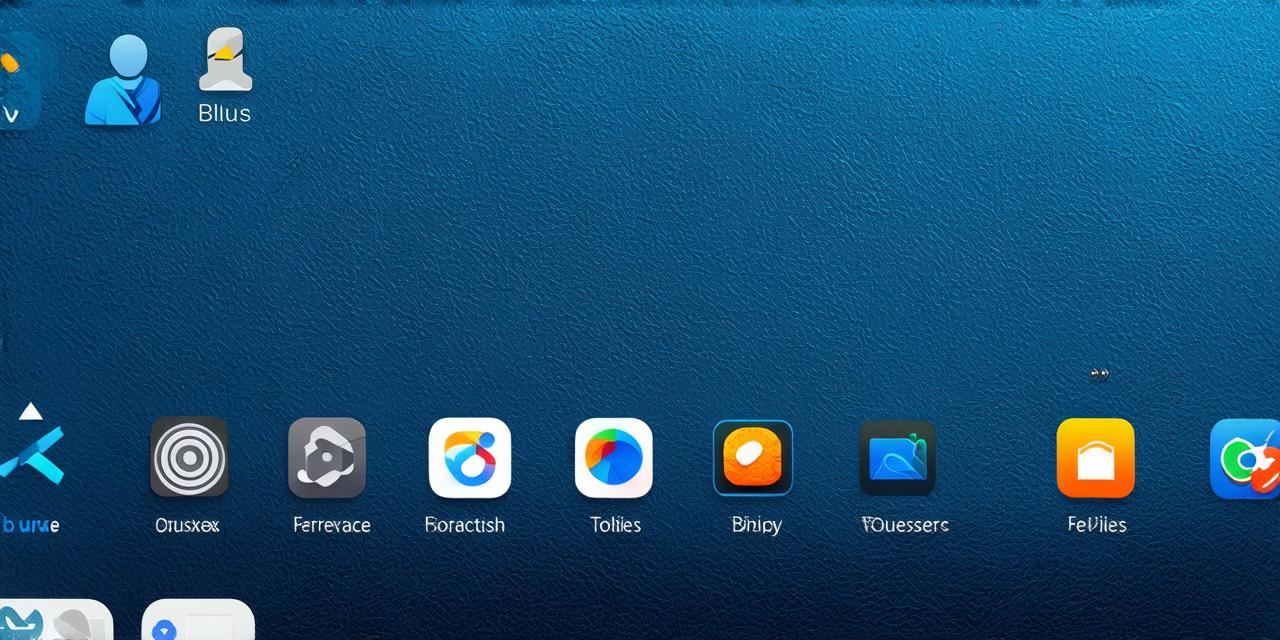As the world becomes increasingly digital, mobile applications have become an integral part of our daily lives. Whether it’s for work, entertainment, or socializing, apps have made our lives easier and more efficient. But have you ever wondered about the people behind these amazing applications? Who are they, and where do they work?
The Role of App Developers
App developers are responsible for designing, creating, and maintaining mobile applications. They use various programming languages, frameworks, and tools to develop apps that run on different platforms such as iOS, Android, and Windows. Their roles can vary depending on their specialization in different areas such as front-end development, back-end development, UI/UX design, or quality assurance testing.
The Work Environment of App Developers
App developers can work in a variety of settings, including traditional offices, startups, remote locations, or even freelance. The work environment of app developers varies depending on their job title, experience, and preferences.
Traditional Offices
Traditional offices are still a popular place for app developers to work. They can be found in various industries such as finance, healthcare, education, or entertainment. In traditional offices, app developers typically work in teams with other professionals such as designers, project managers, and product owners. They collaborate on the app’s development process, from ideation to deployment.
Startups
Startups are a popular choice for aspiring app developers. They offer a dynamic and fast-paced work environment that allows developers to take on new challenges and learn quickly. In startups, app developers often work in small teams with limited resources, which requires them to be highly skilled and adaptable. They may also have the opportunity to work on multiple projects simultaneously or pivot to different areas of development based on business needs.
Remote Locations
With the rise of remote work, more and more app developers are choosing to work from home or other remote locations. This allows them to have more flexibility in their schedules, work from anywhere in the world, and collaborate with team members using technology. However, working remotely can also be challenging, as it requires strong communication skills and self-discipline.
Freelance
Freelance app development is a popular choice for experienced developers who want to have more control over their work and income. They can work on multiple projects simultaneously, set their own rates, and choose the clients they work with. However, freelance app development can also be isolating, as developers may miss out on the social aspects of working in a team.
Case Studies: Success Stories from App Developers
Now that we have covered the roles and work environments of app developers let’s look at some real-life examples of successful app developers to get a better understanding of what it takes to create a successful app.
Uber
Uber is one of the most successful mobile apps in history, with over 100 million users worldwide. The company was founded by Travis Kalanick and Garrett Camp in 2009 as a ride-sharing app for San Francisco residents. The app quickly gained popularity and expanded to other cities around the world.
Uber’s success can be attributed to its user-friendly interface, competitive pricing, and strong branding.

Instagram is another popular mobile app that has made its founders, Kevin Systrom and Mike Krieger, billionaires. The app was launched in 2010 as a photo-sharing app for iPhone users. It quickly gained popularity among young people and eventually became a platform for influencers, brands, and businesses.
Instagram’s success can be attributed to its simple and intuitive interface, strong visual appeal, and ability to connect people with similar interests.
Tinder
Tinder is a dating app that has revolutionized the way people meet new people. The app was launched in 2012 by Sean Rad, Justin Morgenstern, and Jonathan Badeen as a platform for college students to meet potential partners. The app quickly gained popularity among young people and eventually became a global phenomenon.
Tinder’s success can be attributed to its innovative swipe-based interface, strong branding, and ability to match people based on shared interests.
Summary
In conclusion, app developers work in various roles and environments depending on their expertise and preferences. They are responsible for designing, creating, and maintaining mobile applications that have become an integral part of our daily lives. Whether it’s a ride-sharing app like Uber, a photo-sharing app like Instagram, or a dating app like Tinder, app developers play a critical role in shaping the future of technology.
So, the next time you use a mobile application, take a moment to appreciate the hard work and dedication of the app developers who created it. Remember that they are not just behind the scenes but also in front of our screens, making our lives easier and more efficient.



